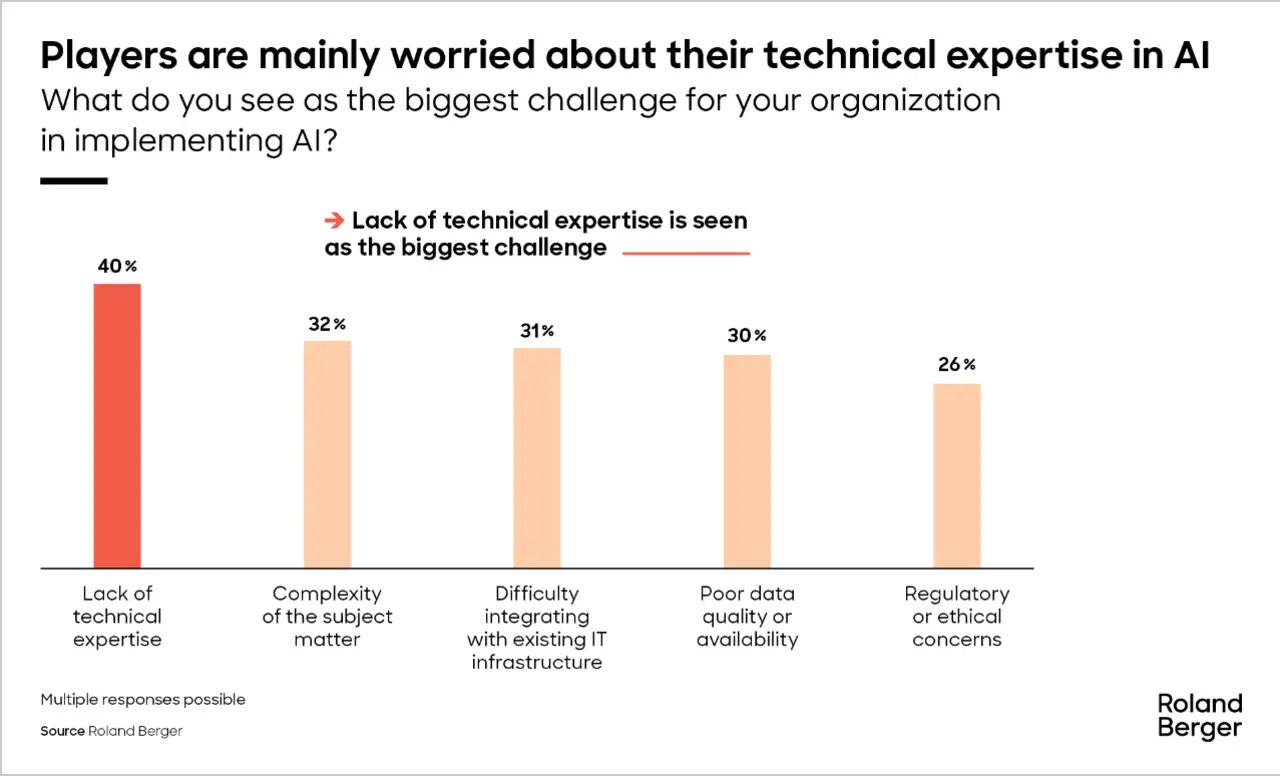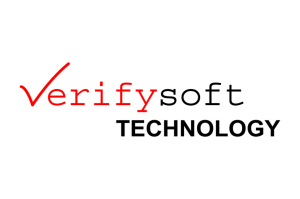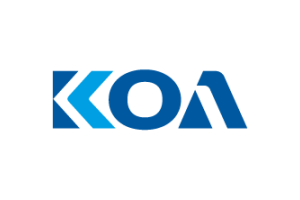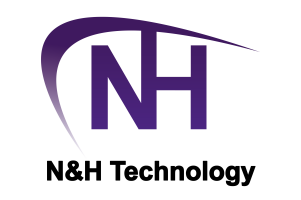Roland Berger Study »Future of Health«
AI in Healthcare: Between Evolution and Disruption
What is the impact of artificial intelligence in healthcare? The "Future of Health" study by Roland Berger surveyed 100 managers from 12 countries and paints a differentiated picture of the AI transformation as an evolutionary development in hospitals and among medical technology manufacturers.
The results of a recently published study by consulting firm Roland Berger show that AI is changing the healthcare sector in the form of a rapid evolution rather than an abrupt revolution. This development enables the players to carefully formulate strategic responses. Today, 52% of hospitals are already using AI in medical diagnostics, with a third in the pilot phase.
AI as a Driver - Factors and Challenges
The healthcare sector is under multiple pressures: a shortage of specialists, strict regulation and increasing complexity in information management demand new solutions. A global shortage of 10 million healthcare professionals is predicted by 2030.
Demographic Change
Rising life expectancy coupled with only a moderate increase in healthy life expectancy is increasing the need for care. On average, people are living longer with health restrictions than in the past.
Unequal Supply
In the US, people in rural areas are 20% more likely to die than those in urban areas - a gap that has widened over the past two decades.
Market Development and Investments
The global healthcare AI market is expected to grow to 187.7 billion US dollars by 2030. In the last three years alone, over 30 billion US dollars have been invested in healthcare AI companies. Spending on AI-related hardware and software will increase from USD 26 billion in 2024 to a forecast USD 59 billion in 2028.
| »As the healthcare system shifts towards a more patient-centric approach, players need to rethink their traditional structures and reassess their business models. AI can act as an enabler for the entire organization.« |
|---|
| Ulrich Kleipaß, Senior Partner Roland Berger, Berlin |
What does the AI Trend mean for Medtech OEMs?
High Adoption Rate in R&D
AI usage is particularly high in the medtech sector: 79% of the companies surveyed are already actively using AI in research and development, 54% in production.
Make or Buy
A key strategic question for medtech companies is the decision between in-house development and the purchase of AI capabilities. While large companies are increasingly developing their own AI technologies, often in partnership with tech giants, smaller and medium-sized companies tend to collaborate with specialized AI providers.
Regional Differences
The implementation of AI solutions varies greatly from region to region due to different regulations and data protection laws. The EU, with its strict MDR and the AI Act, influences the handling of AI-related data, while the regulatory environment in the USA is developing more quickly.

Fields of Application and Potential
Diagnostics and Treatment
AI enables more precise diagnoses and personalized treatment plans. Multimodal AI systems can integrate data from various sources such as imaging, patient history and genetic information.
Administration
In administration, 52% of healthcare providers already use AI in standard processes. A further 20% are in the pilot phase.
Preventive medicine
AI systems can detect chronic diseases such as cardiovascular diseases and diabetes at an early stage and enable proactive interventions.
Recommendations for Medical Technology Manufacturers
For medtech companies, it is clear that standing still means going backwards. The study therefore recommends early strategic positioning in the AI sector, the establishment of partnerships with tech companies, the corresponding development of AI-supported diagnostic and treatment solutions and a focus on personalized medicine through AI integration. In doing so, it is essential to invest in the qualifications of the company's own employees as well as regional regulatory differences for the various target markets.
The transformation through AI is already in full swing. Medtech companies must act now to secure their competitiveness and take advantage of the opportunities offered by AI-driven development. In doing so, it is important to keep an eye on both the technological possibilities and the regulatory framework conditions. (uh)





